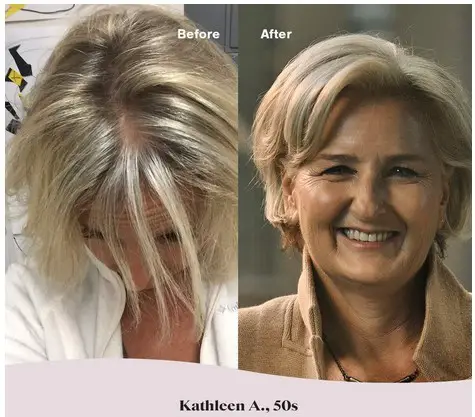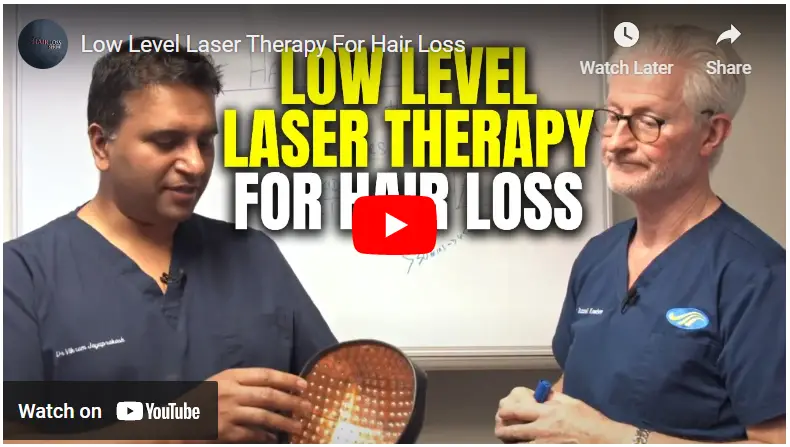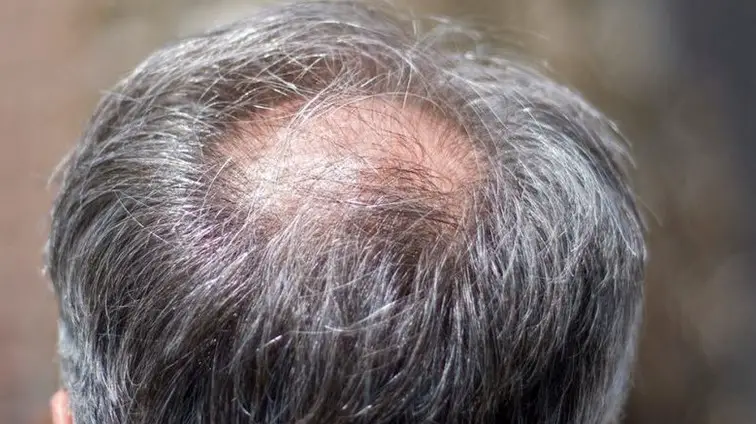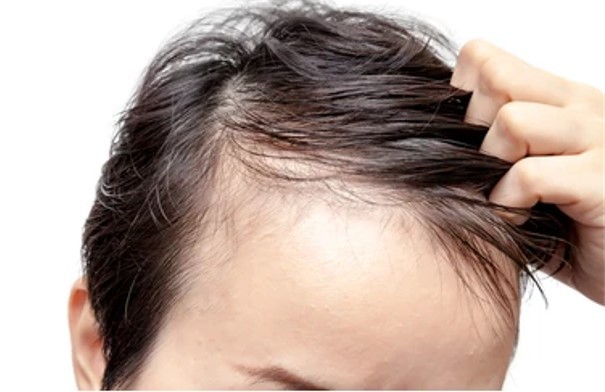Do you struggle with thin natural hair and dream of achieving envy-worthy thickness and growth? You’re not alone, as millions face this common concern. But don’t fret; there are plenty of natural remedies and lifestyle changes that can help improve your hair’s appearance and health.
In this blog post, we’ll explore the causes of thin hair, share proven tips to boost its density and growth, recommend suitable hairstyles for finer locks, and much more. So let’s dive in – healthier, fuller tresses await!
Understanding Thin Natural Hair
Thin natural hair is often caused by genetics, hormonal changes, or damage from heat styling and chemical treatments, and can be characterized by fine strands that lack fullness and volume.
Causes Of Thin Hair
There are numerous factors that can contribute to thinning hair, ranging from genetics and hormonal changes to lifestyle choices and nutritional deficiencies. One common cause of thin hair is heredity, where an individual inherits a predisposition towards fine or sparse strands. In such cases, the hair follicles may produce thinner hairs than usual, leading to an overall appearance of reduced fullness and volume.
Hormonal changes across various stages of life – including pregnancy, menopause, and certain medical conditions – can also lead to hair thinning. For example, during menopause, fluctuating estrogen levels can result in weaker strands and increased shedding. Moreover, stress plays a significant role in causing temporary hair loss by disrupting the natural growth cycle of the scalp’s follicles. This condition is known as telogen effluvium; it typically resolves on its own once the underlying stressors are addressed. Other key contributors include vitamin deficiencies (especially iron and biotin), extreme dieting or excessive weight loss which deprives your body of essential nutrients necessary for healthy hair growth.
It’s crucial to understand the root causes behind your thinning hair before exploring appropriate remedies – be they natural or clinical – for achieving fuller locks over time. By addressing these factors early on with proper lifestyle adjustments such as reducing stress levels or improving nutrition intake (including consuming adequate amounts of zinc-rich foods like eggs and beef), you stand a better chance at promoting thicker tresses naturally without needing extensive interventions down the road.
Common Characteristics Of Thin Hair
Thin hair, while often confused with fine hair, has its own set of distinct characteristics. Fine hair refers to the thickness or diameter of individual strands, whereas thin hair pertains to the overall density and volume – this means someone can have a head full of fine hairs that aren’t necessarily thin. Understanding these distinctions is crucial when tailoring your daily hair care routine and choosing hairstyles that complement your natural texture.
One common characteristic of thin hair is its lackluster volume; it tends to appear limp and struggle with holding curls or maintaining structured styles like braids for extended periods. Additionally, those with thinner locks may experience increased oiliness on their scalp due to fewer follicles absorbing sebum production. This can result in the need for more frequent shampooing in order to maintain freshness.
Another challenge faced by individuals dealing with thinning hair is breakage and shedding caused by harsh chemical treatments or excessive heat styling tools such as flat irons, curling wands, and blow dryers. To prevent further damage from occurring while promoting healthy growth under these circumstances, it’s important to handle your tresses gently during detangling sessions (utilize wide-tooth combs), opt for nourishing protective styles like twists outs rather than tight ponytails which can stress root areas over time leading more loss issues down the line when executed improperly on weakened strands
Natural Ways To Thicken And Promote Hair Growth
Discover natural remedies like herbs, scalp massages, and nourishing oils such as Jamaican black castor oil to make a remarkable difference in the health of your thinning hair. Explore these easy-to-follow tips to improve your hair thickness and growth naturally.
Proper Nutrition For Hair Health
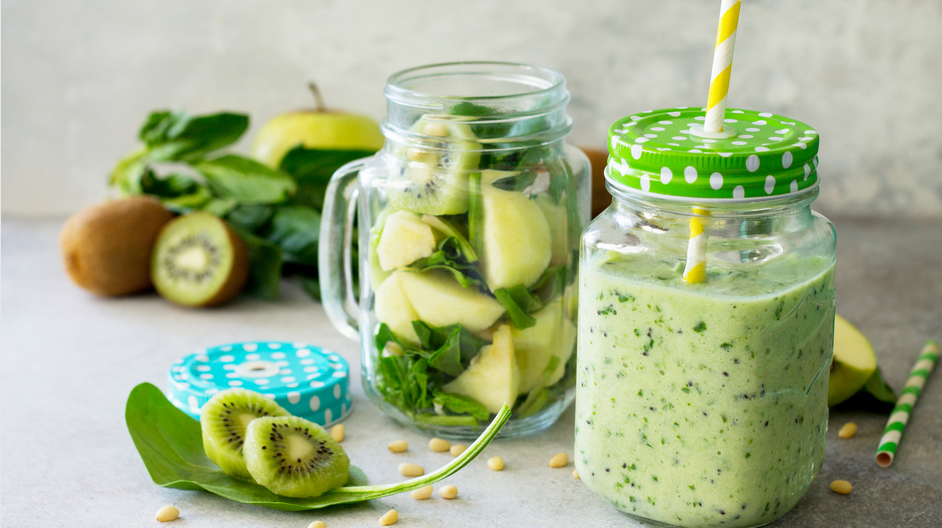
Proper nutrition plays a crucial role in promoting hair health, thickness, and growth. A well-balanced diet that is rich in essential vitamins that works, and minerals like protein, biotin, vitamin D3, B vitamins, pantothenic acid (B5), and selenium can make a significant difference in the strength, shine, and overall texture of your thin natural hair. For instance, incorporating fatty fish such as salmon or mackerel into your meals provides vital nutrients that support healthy hair follicles while securing strong strands.
Including vitamin C-rich foods like oranges or strawberries will help protect your hair from free radical damage while supporting collagen production for optimal scalp health. Greek yogurt should also be on your list; its high levels of pantothenic acid contribute to improved blood flow to the scalp and enhanced hair growth. Avoid diets that are extremely low in protein as they may result in restricted hair development or even loss altogether. For extra reinforcement against brittle and damaged locks or an unhealthy scalp environment, consider integrating a supplement tailored specifically for good hair health – Nutrafol is one example – into your daily regimen. With proper dietary care combined with these nutritional tips tailored towards natural remedies for thinning hair issues, you can expect to observe significant improvements over time.
Natural Remedies For Thinning Hair

If you’re experiencing thinning hair, there are natural remedies and herbs that can help stimulate hair growth. Here are some herbs that are believed to aid in this process:
1. Ginseng: This herb has been used for centuries as a natural remedy for hair loss. It contains saponins, which have been shown to promote hair growth and strengthen hair follicles.
2. Rosemary: This herb is believed to improve scalp blood circulation and reduce inflammation in the body, both of which can lead to healthier hair growth.
3. Horsetail: Horsetail is high in silica, which is important for healthy hair growth. It’s also believed to have anti-inflammatory properties that can help prevent hair loss.
4. Aloe Vera: Aloe vera gel can help soothe an inflamed scalp and promote healthy hair growth.
5. Saw Palmetto: This herb may be helpful for those experiencing pattern baldness, as it’s believed to block the production of DHT (a hormone that contributes to hair loss).
By incorporating these herbs into your routine, along with other natural remedies and lifestyle changes (such as proper nutrition and stress management), you may be able to see improvements in your thinning hair over time.
Scalp Massages And Stimulation
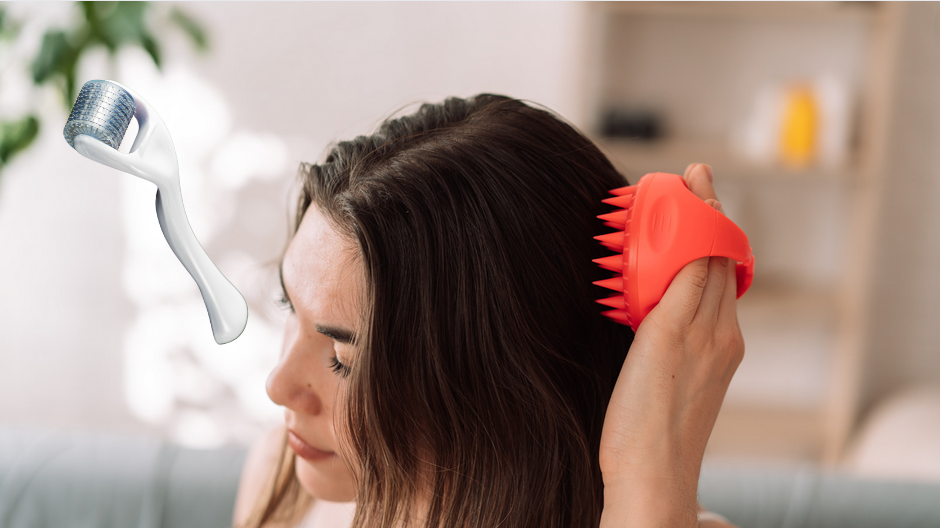
Scalp massages and stimulation can be effective in promoting hair growth and improving the thickness of thin natural hair. One way to stimulate the scalp is through dermarolling, which involves using a roller with tiny needles to puncture the skin and create micro-injuries that encourage collagen production. Applying minoxidil after dermarolling can enhance its effectiveness in promoting hair growth.
In addition to dermarolling, traditional scalp massages have also been shown to increase blood flow to the scalp, delivering essential nutrients and oxygen for healthy hair growth. A gentle circular motion of the fingertips on the scalp for 5-10 minutes per day can help reduce stress levels while stimulating follicle activity for thicker, stronger strands.
Sun Protection For Hair Health
It is crucial to protect your thin natural hair from sun damage, as prolonged exposure may lead to breakage and thinning. To maintain healthy hair, limit your time in direct sunlight or wear a hat when outdoors. Additionally, use products that contain UV filters to shield hair from harmful rays.
Natural oils like coconut oil and jojoba oil can also help protect your hair from the sun’s damaging effects. Apply a small amount of oil throughout your strands before heading outside for added protection. In addition, washing your hair with lukewarm water instead of hot water will prevent further dehydration due to heat exposure. Remember that prevention is key when it comes to maintaining thick and healthy natural hair!
Managing Stress For Healthier Hair
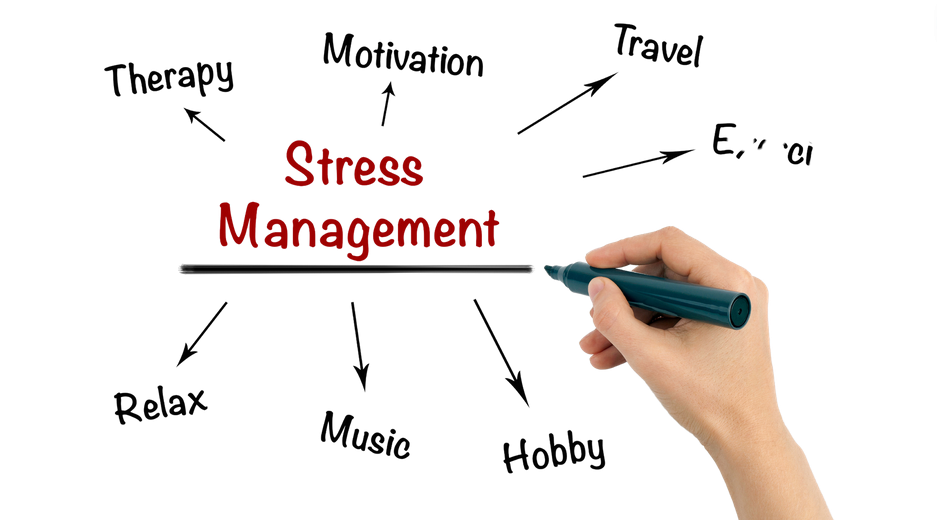
Stress has been identified as a contributing factor to hair loss and thinning. When you are under stress, the body produces cortisol, which can lead to decreased hair growth. Therefore managing stress is crucial for promoting healthier hair growth. There are several ways you can manage your stress levels and promote healthy hair growth naturally. For instance, getting enough sleep every night, practicing relaxation techniques such as yoga or meditation, and engaging in regular exercise are all effective strategies for reducing your overall stress levels.
Additionally, scalp massages have been shown to be a great way of relieving tension and promoting blood flow to the scalp region. Massaging your scalp with natural oils like Jamaican black castor oil or Foliprime hair growth serum may help reduce inflammation while also nourishing the follicles with essential nutrients that promote healthier hair growth. By adopting these natural remedies targeted at reducing your stress levels regularly and staying committed to them over time, you will likely begin seeing an improvement in the fullness of your natural thinning hair strands over time.
Keywords: Managing Stress for Healthier Hair; Thin Natural Hair; Natural Remedies for Thinning Hair; Scalp Massages; Jamaican Black Castor Oil; Exercise
Nourishing Hair With Natural Oils
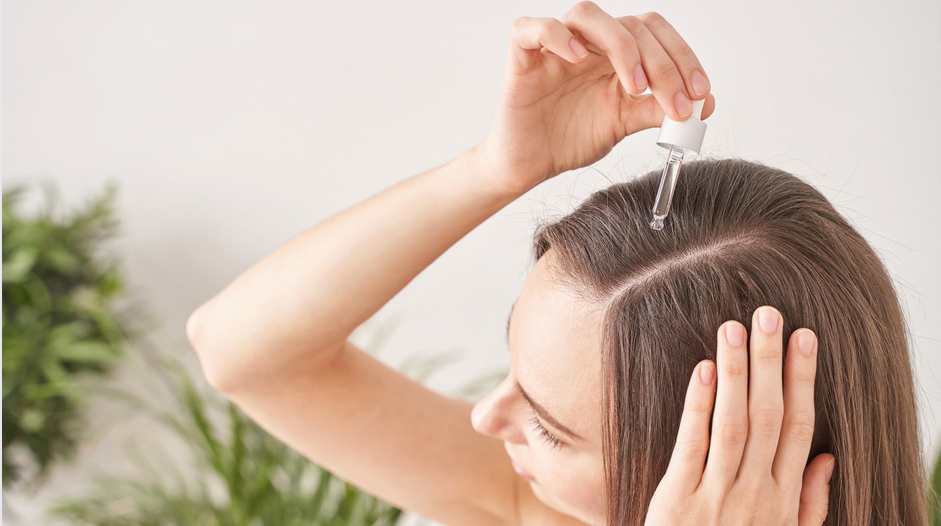
If you are looking for natural remedies for thinning hair, incorporating nourishing oils into your hair care routine can be a great option. Here are some natural oils that can promote hair growth and thickness:
1. Jamaican Black Castor Oil: This oil is rich in fatty acids that nourish the scalp and promote hair growth. It also has anti-inflammatory properties that can help reduce inflammation and irritation on the scalp.
2. Essential Oils for Hair Growth: Some essential oils such as rosemary, peppermint, and lavender oil have been shown to promote hair growth when applied topically to the scalp. These oils work by improving blood circulation to the scalp and stimulating hair follicles.
3. Foliprime Hair Growth Serum: This serum contains a blend of natural ingredients such as biotin, castor oil, and caffeine that work together to promote healthy hair growth. It also helps to nourish and strengthen hair strands, reducing breakage.
Incorporating these natural oils into your routine can help nourish your scalp and promote healthy hair growth without harsh chemicals or medications. Remember to research the benefits and potential side effects of any new products before using them on your hair.
Using Hair Growth Supplements

Hair growth supplements are a popular option for those looking to improve the thickness and growth of their thin natural hair. Viviscal, Tress Anew, and Divine Locks are among the most commonly used drug-free supplements by women – with 92% claiming to have seen positive results in promoting hair growth and thickness.
These supplement brands typically contain a blend of vitamins, minerals, amino acids, marine extracts like Aminomar marine complex (which is found in Viviscal), biotin, and other essential nutrients that support healthy hair growth from within. When incorporated into one’s daily routine alongside proper nutrition and lifestyle changes like avoiding chemical treatments or limiting heat damage can result in visibly fuller hair over time.
It’s important to note that while these supplements have been successful for many users, individual results may vary – It’s advisable to consult with your health practitioner before starting any vitamin regimen, especially when taking medications or medications with side effects that affect the health of your scalp or cause hair loss.
Best Natural Shampoo For Thinning Hair
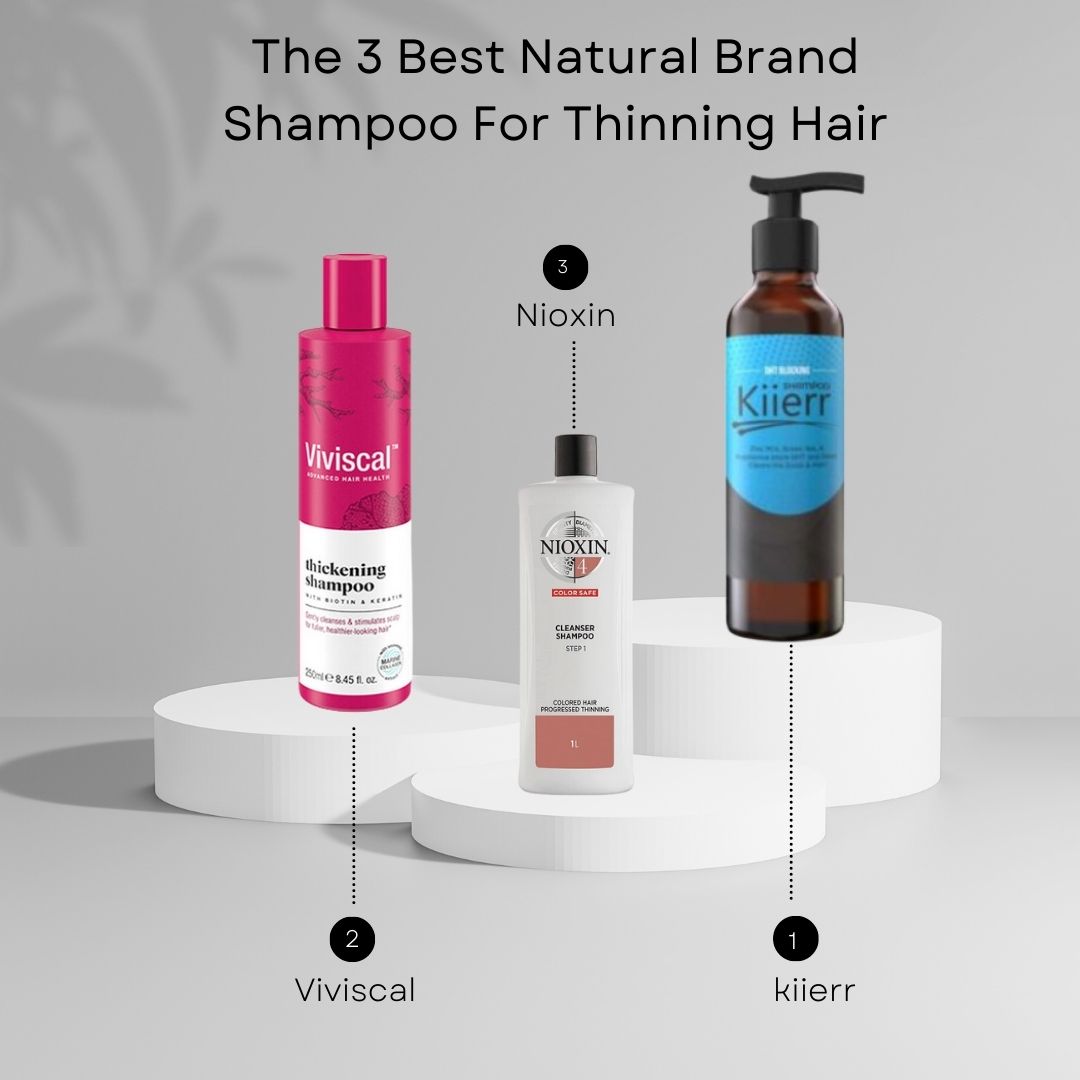
Finding the right shampoo can make all the difference in the health and thickness of your hair. The best natural shampoos for thinning hair are Viviscal Thickening Shampoo, Nioxin Thinning Hair Systems, and kiierr dht-blocking shampoo. These products are specifically formulated to address thinning hair and promote natural growth.
| Shampoo | Key Ingredients and Benefits |
|---|---|
| Viviscal Thickening Shampoo | Features Ana: Tel™ complex, which is a blend of natural ingredients that strengthen hair and promotes growth, and biotin, keratin, and zinc to nourish hair and scalp. |
| Nioxin Thinning Hair Systems | Utilizes a Cleanser that removes follicle-clogging sebum, fatty acids, and environmental residues from the scalp skin, promoting a healthier environment for hair growth. Offers different systems to cater to various hair types and concerns. |
| kiierr dht-blocking shampoo formulated | Formulated to block DHT, the hormone that contributes to hair loss, this shampoo also contains essential nutrients such as biotin, zinc, and keratin to support hair growth and thickness. |
By incorporating these natural shampoos into your hair care regimen, you can promote healthier, thicker, and more robust hair growth. Always remember to follow a balanced diet, stay hydrated, and avoid harmful hair treatments to ensure the best possible results.
Lifestyle Changes To Improve Hair Thickness And Growth
Proper haircare techniques, limiting chemical treatments, addressing hair loss, choosing appropriate hairstyles for thin hair, and preventing heat damage are all simple lifestyle changes that can help improve the thickness and growth of thin natural hair.
Proper Haircare Techniques
Proper haircare techniques are essential in promoting hair thickness and growth. Here are some tips to follow:
1. Use a sulfate-free shampoo: Sulfate shampoos can strip hair of its natural oils, causing it to become dry and brittle. Instead, use a shampoo that is gentle on your scalp.
2. Don’t over-wash your hair: Overwashing can lead to dryness and breakage. Try to wash your hair no more than three times a week.
3. Use a conditioner that adds volume: Look for volumizing conditioners that contain ingredients like biotin, panthenol, or keratin.
4. Avoid heat styling tools: Heat styling tools can damage the hair shaft and inhibit growth. Air-dry your hair as much as possible and limit the use of flat irons, curling irons, and blow dryers.
5. Protect your hair from UV rays: The sun’s UV rays can cause damage to the hair follicles, leading to thinning and breakage. Wear a hat or use products with SPF protection when spending time outdoors.
6. Avoid tight hairstyles: Tight hairstyles like ponytails or braids can pull on the hair follicles and cause damage over time. Opt for looser styles instead.
By following these proper haircare techniques, you can help improve the health of your thin natural hair and promote fuller, thicker growth.
Preventing Heat Damage
Heat damage is a significant concern for anyone trying to promote healthy hair growth, especially those with thin natural hair. Excessive heat from styling tools like flat irons, curling wands, and blow dryers can weaken the hair shaft and cause breakage, leading to thinner locks over time. To prevent heat damage, try air-drying your hair as much as possible before using any styling tool. When you do use heating tools, make sure to apply a heat protectant spray or serum to shield your strands from high temperatures. Also, consider investing in low-heat versions of styling tools that won’t fry your delicate strands.
Another way to prevent heat damage is by choosing hairstyles that require minimal heating tools. Opting for protective styles such as braids or twists that don’t have excessive manipulation can reduce the need for daily use of heated styling products significantly. Ultimately reducing unnecessary exposure to high temperatures in everyday routines will help maintain proper thickness and growth patterns for thin natural hair.
By taking precautions against using too many heating tools daily and choosing low-heat alternatives when necessary or finding cool options such as scarf/head wraps during colder months can go a long way towards keeping your thin natural hair looking healthy while promoting thicker tresses naturally over time.
Limiting Chemical Treatments
Limiting chemical treatments can play a vital role in improving the thickness and growth of thin natural hair. Many chemical treatments, such as coloring, relaxing, or perming, can cause damage to the hair follicles and lead to breakage and thinning. However, avoiding these harsh chemicals is easier said than done for some people who have relied on them for years. To transition to a more natural approach, consider gradually cutting back on these treatments or finding less harmful alternatives that use organic ingredients.
One good option is henna dye which not only adds color but also strengthens hair strands by binding with the keratin protein found in each strand. Another alternative is using heat-free methods like bantu knots or twist-outs to achieve desired styles instead of using hot tools like flat irons or curling wands that cause heat damage leading to brittle weak hair over time. Overall limiting chemical treatments may be challenging at first but will eventually lead to healthier stronger thicker tresses worth showing off!
It’s important not just because it prevents further harm and breakages but because chemicals strip our strands of their natural oils leaving them dry brittle shrunken and unhealthy-looking – ultimately harming various parts from follicles all towards ends – making us feel distressed about how our hair looks altogether. By ditching unnatural products you are choosing better health for your crown- a step towards richness after months of frustration over receding/thinning textures due-to-the excess days depending on chemicals; allowing your locks room enough to breathe making it look voluminous keeping it healthy-looking day by day without burning holes within pockets too!
Addressing Hair Loss
Hair loss can be a distressing experience for anyone, and it’s essential to address it as soon as possible. The first step is to identify the root cause of your hair loss. Common causes include hormonal imbalances, poor diet, stress, and certain medical conditions. Once you have identified the cause, you can then take steps to address it.
One way to tackle hair loss naturally is by nourishing your scalp with natural ingredients like coconut oil or castor oil. Regular massages with these oils stimulate circulation in the scalp and provide much-needed nourishment to the hair follicles. Another effective method is incorporating healthy foods into your diet that are rich in vitamins B12 and D3 – both essential nutrients for healthy hair growth. Additionally, taking supplements like Viviscal or Tress Anew could also help promote significant hair growth safely and effectively through clinical trials.”
Choosing Appropriate Hairstyles For Thin Hair
Choosing the right hairstyle for thin hair can make a big difference in how thick and full it appears. One of the best options is to opt for shorter cuts, like a pixie or bob style, as longer hair tends to weigh down thinner locks. Layers can also add volume and texture to fine strands. Adding bangs can also help give the illusion of thicker hair by framing the face and drawing attention away from any areas where hair may be thinner.
Another great way to style thin crown hair is with braids or twists, which can help create the appearance of fuller locks. Braid crowns, side braids, or simple braided buns are all fantastic options. However, it is important not to pull these styles too tightly as this can cause breakage and further damage to already delicate strands.
By following these tips you’ll be well on your way to achieving fuller-looking tresses naturally!
Tips For Thicker Hair Naturally
Incorporating healthy habits like a balanced diet, regular hair trims, and staying hydrated can make a significant impact on your hair’s thickness and growth–discover more tips by reading through the rest of our guide!
Eat A Balanced Diet
A balanced diet is essential for promoting healthy hair growth, especially for individuals with thin natural hair. Consuming nutrient-dense foods can help provide the necessary vitamins and minerals to nourish hair from within. Foods rich in biotin, such as eggs and nuts, have been shown to improve hair thickness and growth. Berries are another excellent option due to their high antioxidant content, which helps protect cells against damage that can lead to hair loss.
It’s also imperative to avoid low-calorie or low-carbohydrate diets since they can result in thinning and brittle strands. Instead, opt for a well-rounded meal plan that includes lean proteins like chicken or fish, leafy greens like spinach, and whole grains such as quinoa or brown rice. Incorporating these foods into your diet not only supports healthy hair but also promotes overall health by providing critical nutrients for optimal body function.
In summary, incorporating a balanced diet consisting of various nutritious foods is crucial when trying to thicken thin natural hair. Aim for a diverse range of fruits, vegetables, lean proteins, whole grains while cutting out processed food items from your daily meals; this provides the body with all the right nutrients needed for strong and luscious tresses that radiate an inner glow of vitality!
Use Natural Hair Masks And Treatments
One effective way to improve thin natural hair is by using natural hair masks and treatments. These can help hydrate and nourish the scalp and hair strands, leading to improved thickness and growth. Here are some natural remedies to try:
1. Homemade Banana Hair Mask: Mash a ripe banana and mix it with a tablespoon of coconut oil. Apply the mixture to your hair, focusing on the ends. Leave it on for 20-30 minutes before rinsing off with water.
2. Hibiscus Flower and Leaf Paste: Blend hibiscus flowers and leaves into a paste, then mix it with coconut oil. Apply the mixture to your scalp and hair, then leave it on for 30-45 minutes before rinsing off.
3. Aloe Vera Gel: Extract fresh aloe vera gel from the plant and apply it directly to your scalp and hair. Leave it on for 30 minutes before rinsing off.
4. Egg Yolk Treatment: Beat an egg yolk in a bowl, then add a tablespoon of olive oil and honey. Mix well and apply to your hair, leaving it on for 30-45 minutes before washing out with shampoo.
By incorporating these natural hair masks into your hair care routine, you can promote thicker and healthier hair growth without relying on harsh chemicals or expensive treatments.
Get Enough Sleep
Getting enough sleep is crucial for healthy hair growth and preventing hair loss. While you sleep, your body repairs and rejuvenates itself, including your hair follicles. Lack of sleep can contribute to stress, which is a common cause of hair thinning and shedding. Aim for at least 7-8 hours of quality sleep each night to promote healthier, thicker natural hair.
In addition to getting enough sleep each night, it’s also essential to manage stress levels throughout the day. Stress can disrupt the natural cycle of hair production and lead to premature shedding or thinning. Finding ways to relax, such as meditation or yoga, can help reduce stress levels and support healthier hair growth over time. Prioritizing self-care practices like proper nutrition, exercise, and adequate rest are vital components in maintaining fuller locks naturally without medication.
To ensure that you get a good night’s restful slumber every night cut back on caffeine intake four hours before bedtime; this would lower cortisol levels keeping blood sugar stable thus leaving you with more restorative deep REM (rapid eye movement) during sleeping hours thereby preventing adrenaline spikes that speed up aging processes like chronic inflammation leading/triggering premature balding tendencies from being triggered while asleep
Stay Hydrated
One of the most important factors in promoting healthy hair growth is staying hydrated. Drinking plenty of water can help to improve the thickness and overall health of thin natural hair. When your body is dehydrated, it cannot effectively transport nutrients throughout the body, including to your scalp and hair follicles. This can result in weak and thin hair strands that are prone to breakage.
In addition to drinking water, you can also keep your hair hydrated by using hydrating hair products such as leave-in conditioners and moisturizing oils. Pay special attention to the ends of your hair which tend to be drier than the rest of your strands. Regular trims can also help prevent split ends from traveling up the shaft of the hair, leading to increased breakage and thinning.
To ensure that you are getting enough hydration for healthier thicker locks, make sure you consume at least eight glasses (64 ounces) a day or more if possible. Remember that nutrition also plays a role so eating fruits like strawberries watersmelon etc with high water content helps keep you hydrated while providing added vitamins necessary for healthy thick natural blonde or curly black textured tresses!
Exercise Regularly
Regular exercise is not only beneficial for overall health but also for promoting hair growth. When you exercise, it improves blood circulation and delivers essential nutrients to the scalp, which helps to nourish hair follicles and promote healthy hair growth. Additionally, exercising can help to reduce stress levels and lower cortisol levels in the body. Stress can cause hair loss or thinning, so finding ways to manage stress through exercise can be incredibly helpful.
Some great exercises that promote hair growth include cardio activities like running or cycling, yoga poses such as headstands or downward dog pose, and even weightlifting exercises like deadlifts or squats. However, it’s important not to overexert yourself with excessive workouts or extreme diets that may negatively impact your hair health. Instead, aim for a balanced routine that includes both cardiovascular activity and strength training while taking good care of your scalp by avoiding harsh chemicals and using gentle products on your strands. Overall, regular physical activity combined with proper nutrition will help improve your overall health while promoting fuller-looking locks!
Avoid Tight Hairstyles
A common mistake people make when trying to style their thin natural hair is by using tight hairstyles. Tight hairstyles like braids, ponytails, or buns can cause tension on the scalp, leading to breakage and damage of already fragile strands. This can result in thinning hair and even bald spots if not addressed properly. It’s important to choose loose protective styles that don’t pull too tightly on the hairline, such as twists or loose braids.
Another alternative is leaving your hair down or opting for a half-up hairstyle with a clip instead of an elastic band. Additionally, try not to keep your protective style for more than two weeks maximum before giving your hair some breathing space. By avoiding tight hairstyles altogether, you will allow your natural locks room to breathe so they can regrow healthier and thicker over time.
Indulge In Regular Trims
One of the best tips to improve thin natural hair’s thickness and growth is indulging in regular trims. Cutting your hair regularly may seem counterintuitive, but it can actually help thicken your hair. Split ends and damaged strands can prevent healthy growth, so keeping them under control by trimming them every six to eight weeks will promote healthier and thicker strands.
Regular trimming works for all types of natural hair textures; you don’t have to cut too much off at once. It’s merely about removing any split or dead ends before they spread further up the shafts to damage more of your precious strands. Trimming helps prevent tangling, which ultimately leads to breakage that could set back the progress you’re making toward achieving fuller hair naturally.
FAQs: Thin Natural Hair
Asking questions is a great way to learn more about how to improve your thin natural hair. Here are some frequently asked questions and their answers:
1. What are some tips for improving the thickness and growth of thin natural hair?
Some tips for improving the thickness and growth of thin natural hair include maintaining a healthy diet, avoiding harsh chemical treatments or heat styling, using products specifically designed for fine hair, regularly moisturizing the scalp, and investing in regular trims to prevent split ends.
2. Can using certain products help improve the thickness of my hair?
Yes! Products such as thickening shampoos or conditioners, volumizers or mousses can all help temporarily improve the appearance of thinning hair by creating volume at the root.
3. How often should I wash my thin natural hair?
Ideally, individuals with thin natural hair should only wash their locks 1-2 times per week to avoid stripping oils from the scalp which could ultimately result in dryness or breakage over time.
4. Is it possible to permanently thicken my naturally thin hair?
While there is no guaranteed way to permanently thicken your naturally fine strands – incorporating healthy habits such as a nutrient-rich diet & overall lifestyle choices may slow down potential loss while treating existing issues that contribute towards unhealthy follicles leading to weakened texture overtime due to environmental factors like pollution, etc.- but investing in quality products designed specifically for fine locks can certainly make a significant difference in its overall health appearance on a daily basis visible improvement after consistent usage over time.
5. Can stress cause hair loss?
Yes, emotional stress can trigger telogen effluvium, which results in the shedding of hair from the scalp.
6. Are there any natural remedies for thinning hair?
Yes, using herbs like rosemary, peppermint, and lavender that stimulate circulation can help promote hair growth. Scalp massages with essential oils or derma rolling after applying minoxidil can also be beneficial.
7. What should I eat for healthy hair?
Maintaining a balanced diet rich in protein, iron, and vitamins D and A can improve the health of your tresses.
8. Is chemical treatment bad for thin natural hair?
Chemical treatments like relaxing or color treatments can damage fragile strands leading to breakage. To protect your locks, limit these processes as much as possible.
9. How often should I trim my ends?
Regular trims every 6 to 8 weeks will prevent split ends from traveling further up the shafts that lead to thinner-looking locks.
You will also like:
- Can Hair Grow Back After Thinning
- Signs Of Balding At 20
- Hair Thinning At Crown Male Treatment
- How To Hide Thinning Hair In The Front
- Black Male Hair Thinning on Top
Conclusion
In conclusion, thin natural hair may seem like a challenge, but there are many ways to boost its thickness and growth. By following a healthy lifestyle, using natural remedies and nourishing products, minimizing stress levels, and avoiding harsh chemicals and styles that damage the hair strands – you can achieve fuller-looking locks in no time.
Always remember that each person’s hair is unique and may require different care routines or supplements – it’s essential to listen to your hair needs as you try out new methods. With dedication and patience, your thin natural hair can become strong, healthy with beautiful fullness!
Source URLs
- https://www.medicalnewstoday.com/articles/319862
- https://www.realsimple.com/how-to-make-hair-grow-thicker-6827419
- https://www.medicalnewstoday.com/articles/325307
- https://www.webmd.com/skin-problems-and-treatments/hair-loss/understanding-hair-loss-basics
- https://www.aad.org/public/diseases/hair-loss/causes/18-causes
- https://www.healthline.com/health/thinning-hair
- https://www.health.harvard.edu/diseases-and-conditions/its-not-too-late-to-save-thinning-hair
- AI Powered Bald Filter Online 2024: See Yourself with No Hair! - January 19, 2024
- Harklinikken Bad Reviews 2024: Analyzing Negative Feedbacks - January 18, 2024
- How to Get the Alex Eubank Hair | Step-By-Step Tutorial 2024 - January 18, 2024

